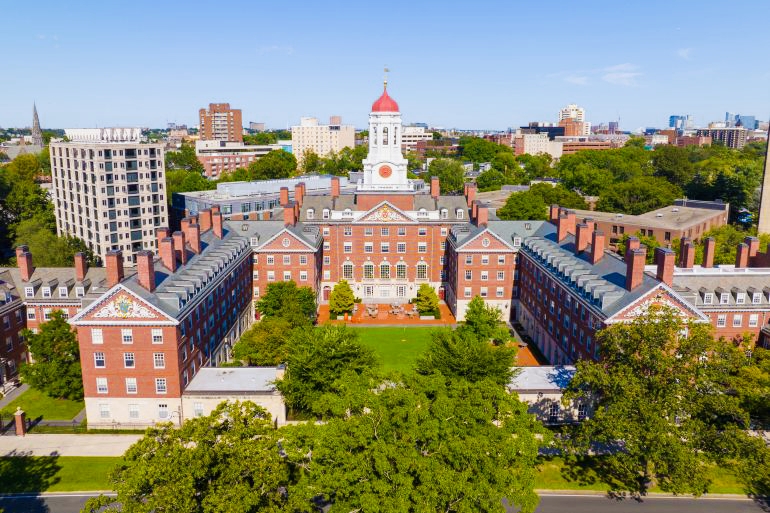In a surprising and confrontational move, the administration of U.S. President Donald Trump has imposed new financial restrictions on Harvard University, one of the oldest and wealthiest universities in the United States, which may threaten its ability to benefit from federal funding allocated for student aid.
The U.S. Department of Education announced yesterday, Friday, that it has placed Harvard under what is known as "Heightened Cash Monitoring", an unusual measure that will force the university to spend money from its own resources to cover student aid before it can reimburse those amounts from the federal government.
* The reason: "Financial concerns" or political disputes?
The department justified these measures by what it described as "concerns about Harvard's financial situation", pointing to the university's recent decisions, such as issuing bonds and laying off employees, amid rising tensions with the White House.
However, behind these measures lies a series of accumulated political disputes between the Trump administration and major academic institutions, led by Harvard, related to sensitive issues such as:
• Student protests supporting Palestinians against the Israeli campaign in Gaza
• Policies regarding transgender individuals
• Climate programs
• Diversity, equity, and inclusion initiatives (DEI).
* Financial demands and escalating pressures
As part of the federal demands, the Department of Education has requested Harvard to provide a financial assurance letter worth 36 million dollars to ensure its ability to meet its obligations.
The department indicated in an official letter that "recent events have raised questions about the financial health of the university".
It also warned that there could be a complete suspension of federal student aid funding if the university does not comply with the requests of the department's civil rights office, which is reviewing whether Harvard still considers race in its admissions processes, despite a Supreme Court ruling in 2023 that deemed "affirmative action" in universities illegal.
According to the department, non-cooperation with this office could lead to legal investigations that may involve intervention from law enforcement agencies.
* Previous positions and massive financial settlements
This is not the first time a prominent university like Harvard has faced federal pressures during Trump's administration; it has previously:
_ The government ended investigations with Columbia University last July, which agreed to pay over 220 million dollars.
_ It also settled with Brown University, which agreed to pay 50 million dollars to support the local workforce.
_ The government also offered a settlement with the University of California in Los Angeles for one billion dollars, which California Governor Gavin Newsom described as "an attempt at extortion".
Regarding Harvard, Trump previously stated that the university should pay "at least 500 million dollars" to settle ongoing investigations.
* Reactions and the fate of funding
As of the time of preparing this report, Harvard has not issued any official comment on the recent steps, while it announced last August that the federal government had frozen about 600 million dollars of funding allocated to it.
Questions remain about whether these steps represent financial pressures with political motives, or if they are part of a comprehensive reset of university funding policies during Trump's administration.

